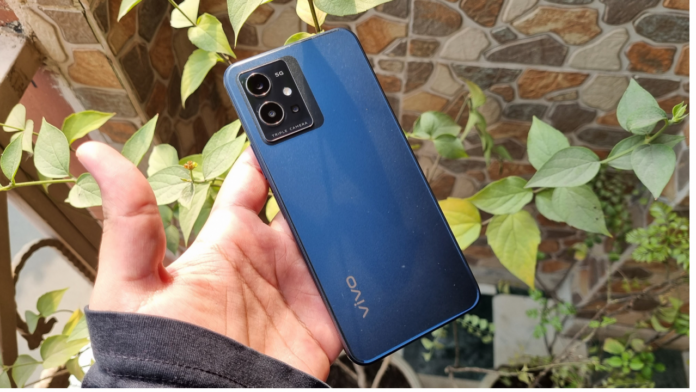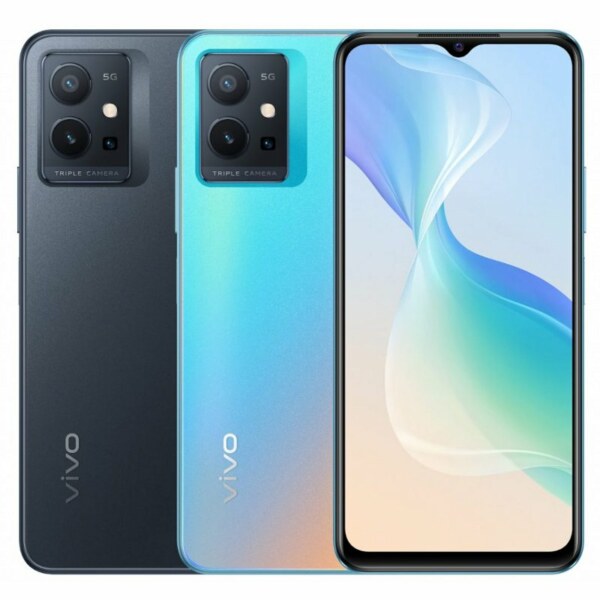Vivo has been expanding its budget segment portfolio in India since the new year began and was the first OEM to launch a smartphone in India in 2022. The brand recently launched the Vivo T1 at Rs 15,990 for the base model which comes with the Snapdragon 695 which is fairly a new Processor that was revealed in late 2021. We also have the Moto G71 and the Realme 9 Pro that are powered by this very same SoC and are also priced similarly. So let’s find out if the Vivo T1 is worth your money or its competition is.
Design-wise, the Vivo T1 looks ordinary with triple cameras at the rear housed inside a rectangular camera module. The device has flat sides and a plastic body which doesn’t feel very premium when you hold it. The black variant we got has a shiny glittery back panel. Then there’s a bottom-firing single speaker that sounds average but gets surprisingly loud.
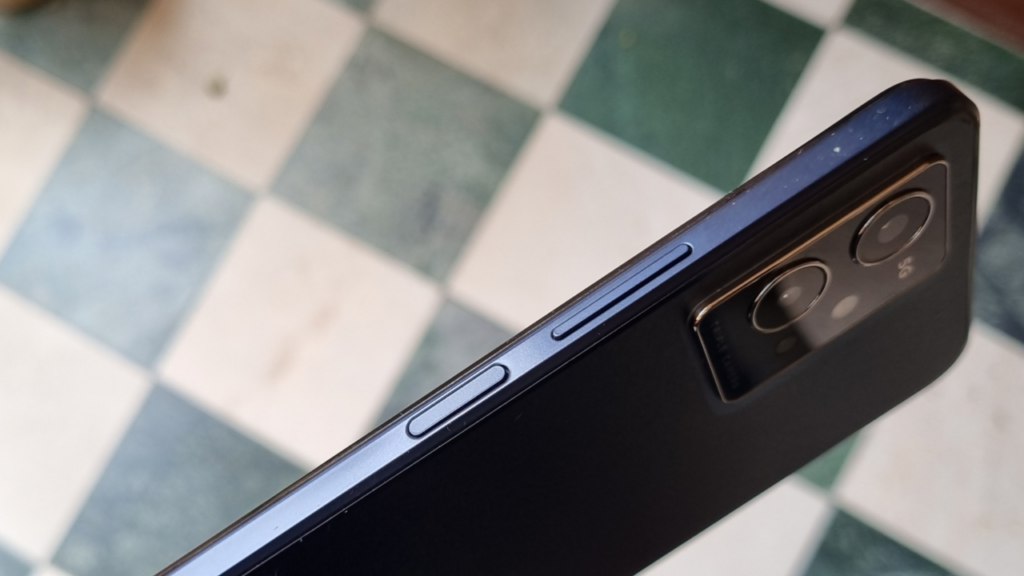
Apart from the speaker, there’s a USB-C port and a 3.5mm Headphone jack as well at the bottom. The power button doubles up as a fingerprint sensor on the right which is very quick to identify when you keep your finger on it. The buttons give good feedback to the click. The left spine stays plain and blanks while at the top, you get a mic and a SIM Tray.
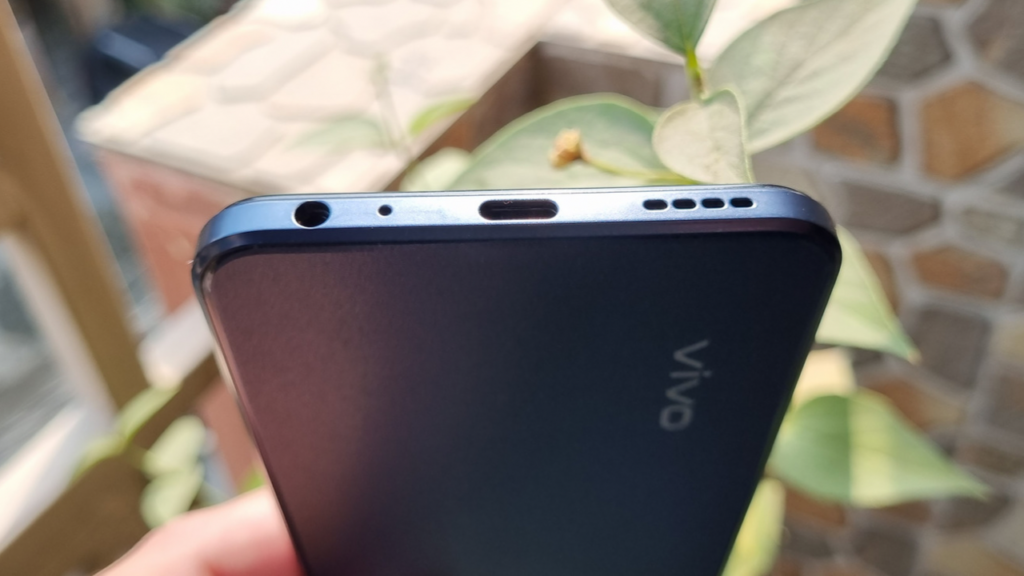
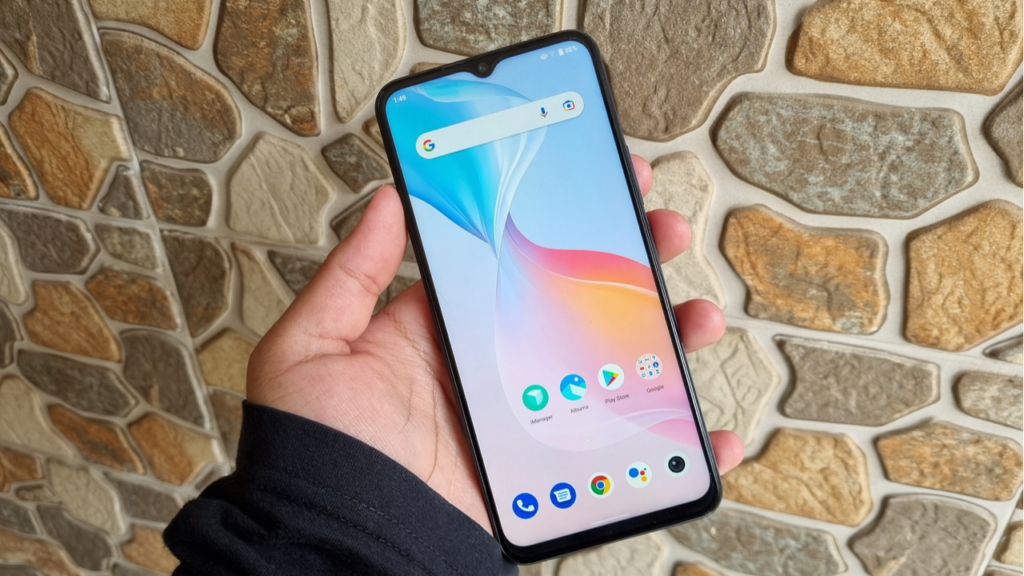
On the front, you get a 6.58-inch IPS LCD full-HD+ display with a 2408 x 1080 Pixel resolution. It has a punch-hole cutout at the centre. In addition, the display has a 120Hz Refresh Rate and 240Hz sampling rate. The display on the Vivo T1 5G provides three options in terms of refresh rate, including 120Hz, 90Hz and 60Hz. The display produces vibrant colours and is very responsive. However, there was a ghosting effect that I could notice while scrolling, which I haven’t experienced with any Vivo phone in the past.
If you want even better colour reproduction, you can choose the Moto G71 as it comes with an OLED panel. But then you’ll have to give up the high refresh rate as its a standard 60Hz panel. The Realme 9 Pro on the other hand has a 120Hz panel but again, its an IPS LCD screen, the same as Vivo T1.
Surprising Gaming performance
Another thing I haven’t experienced in the past with a phone at this price is the gaming performance. Gaming on the Vivo T1 gave me astonishing results where I was able to play Call Of Duty at High graphics with Max fps. Yes, there were occasional frame drops but the game was very much playable and I really enjoyed it. The Snapdragon 695 seems to handle heavy games with ease but with day to day performance, it seems like Vivo still has a lot to do in terms of optimisation.
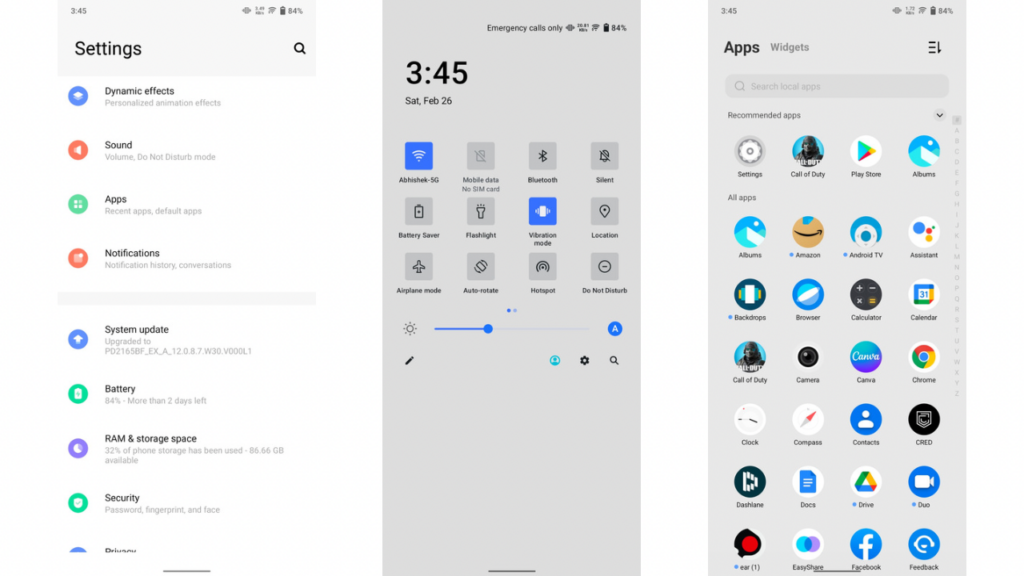
FunTouch OS 12 was fun to use and was like any other Vivo smartphone. But while scrolling through menus or lists of apps, I was able to notice lags and stutters. These don’t stay for long but unfortunately, are noticeable. As for features, you get a bunch of customisation options, including dynamic effects, ultra game mode, virtual RAM up to 4GB, eye protection, etc. I do miss the Material You theming which Google introduced with Android 12, as it’s missing in Vivo’s version of it. With Moto’s and Realme’s software, you get a cleaner look and both of them also support Material You theming.
Read More: Vivo X80 series device tops AnTuTu, Geekbench charts; to be powered by Dimensity 9000 SoC
What about battery life?
Apart from performance, you need a decent battery backup that can get you through your day without the worry of your phone dying. Fortunately, the Vivo T1 does just that. With a 5000mAh battery, the Vivo T1 can last more than a day on even heavy usage. You can kill it in a day though if you game a lot but even on days with heavy usage such as streaming videos, gaming, browsing, calling, etc, I was able to get a screen-on time of more than 6.5 hours. With light usage, you can even get more than 1.5 days.
However, the device does take more than an hour to charge to 100% because of the slower 18W charging speed, in comparison to the competitors that go up to 33W on both Moto G71 and Realme 9 Pro.
Let’s not forget the cameras
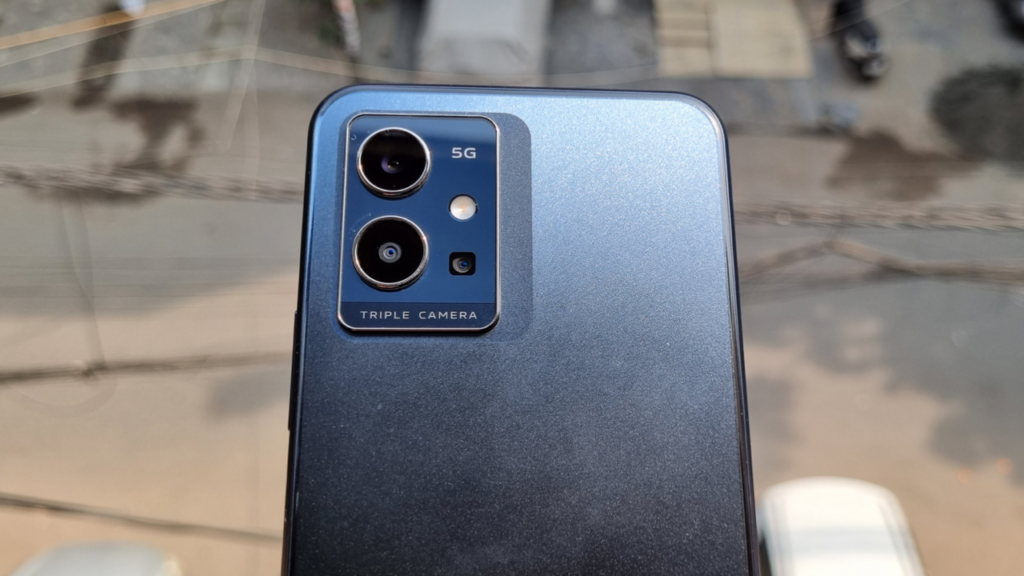
Last but not the least, let’s talk about the cameras on the Vivo T1. There is a triple camera setup on the back of the device. This includes a 50MP primary camera with f/1.8 aperture, a 2MP depth sensor and a 2MP macro sensor with f/2.4 aperture. On the front, it has a 16MP selfie camera with f/2.0 aperture.

The device misses out on a Wide-Angle sensor which is quite disappointing as both of its competitors have that sensor and its more practical than a depth or macro sensor. For the primary 50MP sensor though, the device clicks very good photos under direct sunlight. The colours look vibrant with high detailing, dynamic range and sharpness. A 2x zoom will bring down the details and colour vibrancy.


The 2MP depth sensor clicks good portraits but it’s a hit & miss situation when it comes to EDGE detection. The device does blur out the edges of a subject in some cases while it’s fine in others. The image however is sharp with natural colours and when the camera gets the edge detection right, overall it’s a nice photo to look at.

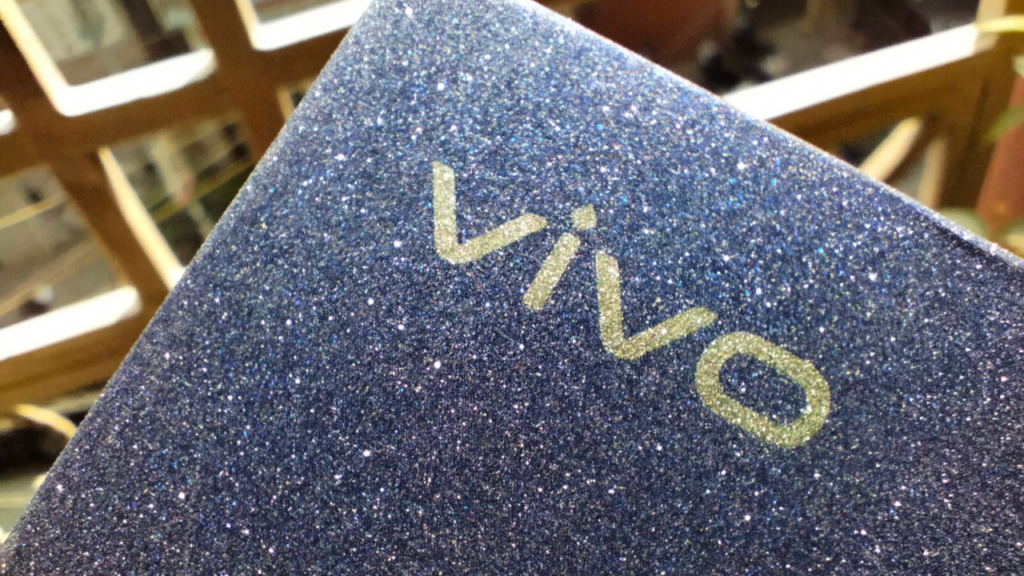
When clicking photos under low-light or artificial lighting, the camera struggles very badly to keep up the details. While it manages to keep vibrant colours, there’s a smudge effect all over the photo with little to no sharpness. A similar situation is present with night shots where you just can’t click a shot properly if you don’t have a tripod as the whole image becomes blurry. Even if you manage to get a tripod, the stills don’t look impressive and the Night mode fails to justify itself.

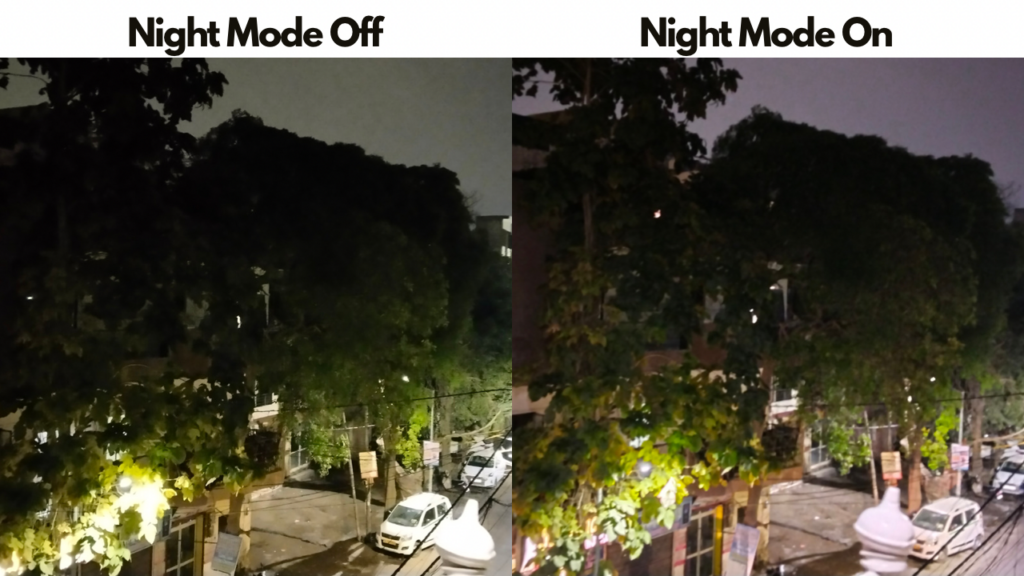
Selfies on the other hand are average. While colours are natural and there’s decent sharpness and details, the edge detection is again not very good in portraits. Finally, the macro shots have decent details and the situation with edge detection remains the same.


